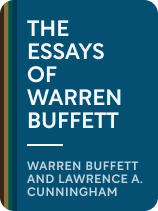

This article is an excerpt from the Shortform book guide to "The Essays of Warren Buffett" by Warren Buffett and Lawrence A. Cunningham. Shortform has the world's best summaries and analyses of books you should be reading.
Like this article? Sign up for a free trial here.
Why does Warren Buffett criticize the Wall Street approach? What are some ways in which Wall Street investment firms mishandle investors’ money?
According to Warren Buffett, Wall Street’s business-as-usual practices highlight many areas in which most investment companies don’t serve the interests of the people whose money they steward. Specifically, Buffett highlights the failings of CEO culture, shady accounting, overpriced acquisitions, and the systemic dangers of financial derivatives.
Keep reading to learn about Warren Buffett’s criticisms of Wall Street’s practices.
The Wall Street Way
According to Warren Buffett, Wall Street’s CEOs lack any true accountability. In theory, CEOs must answer to a board of directors, but in practice that relationship is overly chummy. Directors themselves have little accountability, don’t pay attention to their companies’ business practices, and rarely put themselves on the line to call out poor management. As a result, many CEOs are rewarded for simple mediocrity. Boards and CEOs often do nothing but ride on the wave of their underlings’ efforts, inflate earnings reports by holding back money from investors, then safely escape with their “golden parachutes” if the company fails or is bought out.
(Shortform note: In theory, a company’s CEO and board of directors are answerable to the shareholders, who have the power to vote the board out of office. However, this rarely happens without instigation from the top. In Basic Economics, Thomas Sowell points out that for the most part, shareholders want to reap the benefits of investing without going through the hassle of managing a business. Many board elections are uncontested—directors must simply receive more votes “for” than “against” them in order to retain their positions. However, there’s been a trend in recent years of shareholders taking a more active interest in who sits on corporate boards and how they steer their companies in regard to social and environmental issues.)
Buffett’s ire is particularly strong in regard to awarding stock options as a form of CEO compensation. Managers often negotiate for these, because once awarded, the stock options’ value isn’t tied in any way to CEO performance. A CEO could do nothing for 10 years, cash in his options and receive as much pay as if he’d been effectively running his company. Businesses, in turn, like to award stock options as pay because certain accounting rules let them not be recorded as an expense. However, Buffett argues their expense is very real.
(Shortform note: A stock option is a contractual agreement that allows someone the option to buy or sell a stock at a predetermined price at a future date. When that date arrives, the stock option price and the stock’s actual price may be wildly divergent. For example, if you hold a stock option to buy Company A stock at $100 per share, and the actual stock price shoots up to $200, you can call in your option, buy the stock at the lower $100 price, and immediately double the value of your holdings. However, if the stock price drops instead, you don’t have to buy it at all—you’ve lost nothing. Some employee stock options plans require you to vest over time, but many CEOs are awarded stock options as a form of “free money” bonus when they are hired.)
The theory behind stock options is that they align the CEO with the shareholders. If the CEO adds value to the company, his stock options will be worth more over time. However, an investor must pay the going market price for his stock, whereas the CEO often receives a locked-in rate with the option not to make the purchase. The CEO with stock options, therefore, can reap the same rewards as shareholders but carries none of the risk. Buffett lobbied for a change in accounting rules that would force businesses to list stock options as an expense, but he lost.
| The Trouble With Stock Options A different argument against stock options than the one Buffett makes is that stock options incentivize CEOs to make risky decisions on behalf of their company in order to make the stock’s value spike above its true value. Risky behavior could just as likely make the stock price plummet, in which case shareholders lose value, but the CEO loses nothing. Many corporations still award stock options as a way to boost CEO compensation, despite the fact that there’s no correlation between CEO pay and a company’s prosperity. A 2021 study by Harvard Business Review showed that stock options are only effective in situations where CEOs might otherwise misuse company resources for personal gain. A recent study of CEO pay shows that over 70% comes from stock awards and options, 20% from bonuses, and less than 10% from their actual salary. |

———End of Preview———
Like what you just read? Read the rest of the world's best book summary and analysis of Warren Buffett and Lawrence A. Cunningham's "The Essays of Warren Buffett" at Shortform.
Here's what you'll find in our full The Essays of Warren Buffett summary:
- A glimpse into the mind of a man who disagrees with the typical Wall Street mogul
- Buffett's simple yet difficult insights on investing
- Why some of the most widely accepted economic practices are wrong





